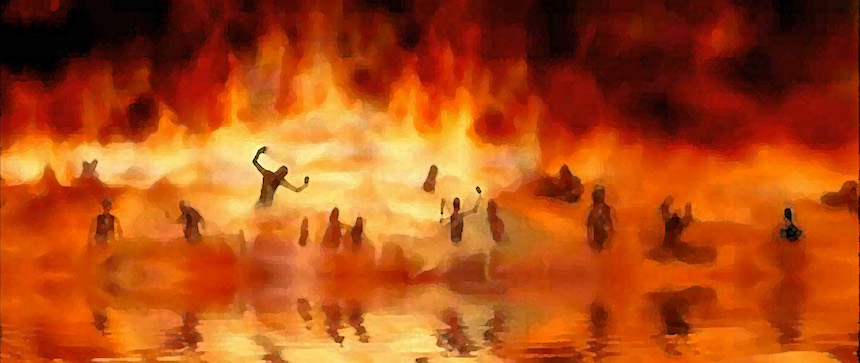An Introduction to Natural Law
Have you ever been confused by the term “Natural Law”? Does it simply mean that if something “natural” then it’s okay? Karlo Broussard explains…
"We are travellers…not yet in our native land" – St. Augustine
Have you ever been confused by the term “Natural Law”? Does it simply mean that if something “natural” then it’s okay? Karlo Broussard explains…


Today I’m going to be looking at a longer chapters of the Qur’an: Surah 36.
Surah 36 – “Ya Sin” (Ya-Sin)
This chapter covers the usual material. Muhammad’s commission by God is, of course, reaffirmed. He is told that some people to whom he speaks will not listen to him, but his job is to warn them anyway.
This chapter describes a pair of missionaries arriving at a city. It is not clear if this is an historic story or not. Either way, the message of the missionaries is rejected, but then a man comes from the city and pleads with his fellow inhabitants to listen to these men. He draws particular attention to the fact that they do not ask for money. For his own part, the man testifies that Allah made him, he will return to Him and thus Allah is worthy of worship and the intercession of the city’s false gods is worthless. The text abruptly switches to speaking about Paradise so my footnotes suggest that this means that the man was killed for his faith. While I can understand this explanation, the Qur’an seems to me to jump randomly from topic-to-topic without warning on a regular basis.
Allah then identifies various “signs” to be submitted for consideration:
I’m not 100% sure, but it seems that these signs are all meant to point to new life and Allah’s saving help.
 Doug Beaumont‘s interview on the Coming Home Network is now up on YouTube. I’ve shared quite a few of Doug’s article’s here before. I’ll also be writing up a review of his book Evangelical Exodus sometime in January.
Doug Beaumont‘s interview on the Coming Home Network is now up on YouTube. I’ve shared quite a few of Doug’s article’s here before. I’ll also be writing up a review of his book Evangelical Exodus sometime in January.
In the interview he speaks about the formation he received at Southern Evangelical Seminary, the relationship between philosophy and apologetics, as well as his wrestlings with “the canon question”: